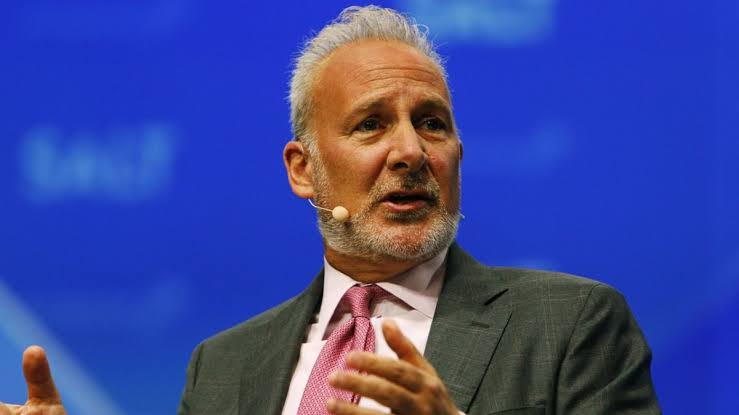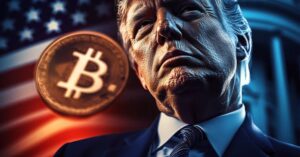
Is Bitcoin a danger to U.S. national security? Peter Schiff, a prominent economist and vocal critic of cryptocurrency, believes it is. In a recent post on X (formerly Twitter), Schiff criticized plans by the Trump administration to include Bitcoin in the United States’ strategic reserve, going so far as to label the cryptocurrency as a “national security threat.”
“Bitcoin has become a national security threat,” Schiff posted on Sunday. He argued that while private citizens can choose to invest in Bitcoin, it becomes problematic when government officials use public funds to acquire the digital currency. According to Schiff, such actions make Bitcoin “public enemy number one.”
Bitcoin as a Strategic Reserve: A Divisive Proposal
Schiff’s remarks come in response to recent proposals from former President Donald Trump and members of the Republican Party to incorporate Bitcoin into national policy. Speaking at the Bitcoin Conference in July, Trump declared his intention, if re-elected, to ensure that the U.S. government retains all its Bitcoin holdings.
“If I am elected, it will be the policy of my administration that the United States keeps 100% of the Bitcoin it currently holds or acquires in the future,” Trump told attendees in Nashville, Tennessee. Echoing the sentiment of crypto advocates, he also advised, “Never sell your Bitcoin.”
Wyoming Senator Cynthia Lummis has gone even further, suggesting that the government should expand its Bitcoin reserves and create a strategic cryptocurrency fund. However, Schiff has criticized this approach, warning that Bitcoin poses more risks than benefits to the U.S. economy.
Bitcoin’s Price Milestone and Schiff’s Timing
Interestingly, Schiff’s comments came on the same day Bitcoin surpassed $100,000 for the first time, a historic milestone that reignited discussions about its place in the global financial system. While Schiff characterized Bitcoin as a threat to the nation, other experts argue that issues like pandemics, including SARS-CoV-2, pose far greater risks to national security.
Ironically, Schiff’s pinned post on his X profile seems to highlight one of Bitcoin’s key advantages. While he regularly criticizes government policies on wealth redistribution and taxation, Bitcoin offers individuals a decentralized way to protect their wealth from such practices. This quality is a key reason why Bitcoin continues to gain traction globally, even among those who typically distrust centralized financial systems.
The Broader Debate on Bitcoin and National Security
Bitcoin’s growing popularity among governments, corporations, and individuals has fueled ongoing debates about its impact on national security. Supporters argue that its decentralized nature provides financial independence, protects against inflation, and serves as a valuable reserve asset.
Critics like Schiff, however, believe Bitcoin undermines traditional financial systems, enables tax evasion, and exposes governments to volatility. His criticism reflects broader concerns about whether Bitcoin strengthens or weakens a nation’s economic stability.
Conclusion
Bitcoin’s role in the United States’ financial future remains a contentious topic. While some view it as a revolutionary asset that can bolster financial independence and diversify reserves, others, like Peter Schiff, see it as a destabilizing force that threatens national security.
As the U.S. government debates the inclusion of Bitcoin in its strategic reserves, the conversation around cryptocurrency’s place in national policy is only set to grow. Regardless of differing opinions, Bitcoin’s impact on the global economy ensures it will remain a hot topic for years to come.






